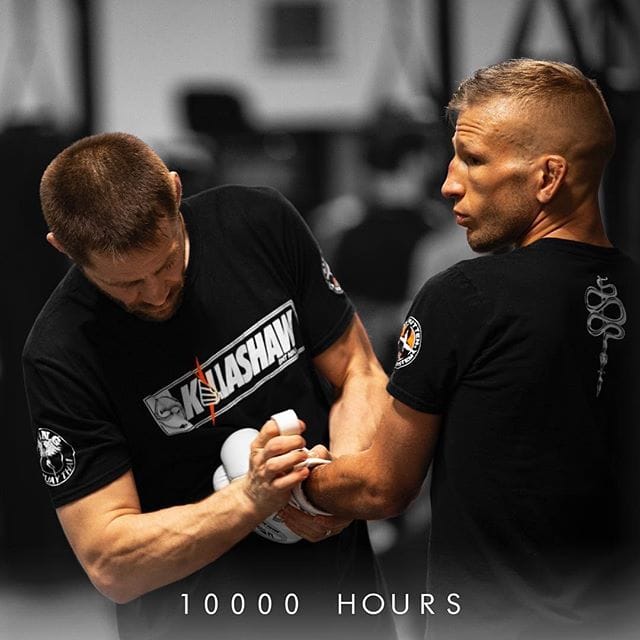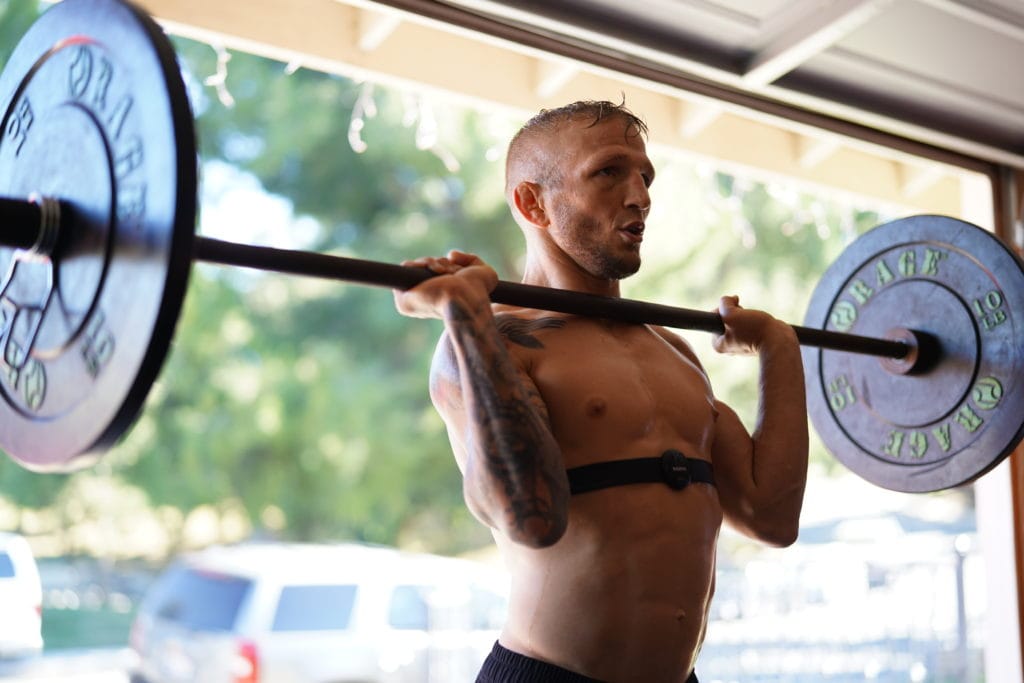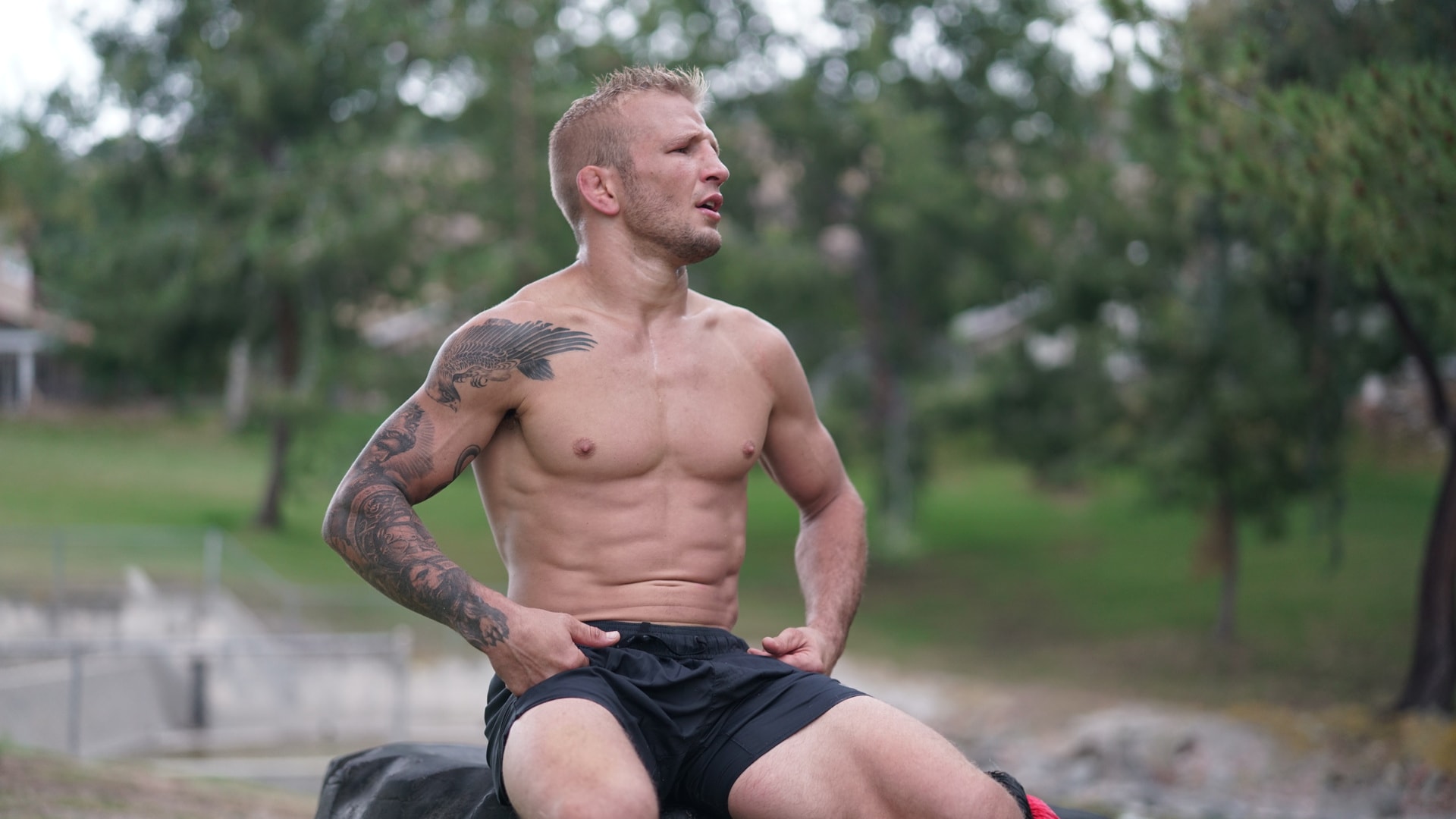Physical strength is admirable. Each of us has most likely envied someone we thought to be super “strong” physically, wishing that if we could just do the workout that they were doing, or eat the foods they were eating … that we would look just like them in no time.
It’s easy to fall into this line of thinking that the people we admire must be genetically blessed, or have one of the best trainers, or have access to a nutritionist, etc … but reality (and research) reveals a different story.
Grit, aka, mental toughness and perseverance, is the number one crucial determiner of true strength … and overall success.
And here’s how to get it.
 Grit Comes First
Grit Comes First
At a popular military academy called West Point, first-year cadets are required to go through a brutal intensive called the “Beast Barracks.” To put it simply, the Beast Barracks is designed to help test cadets on all levels: physically, emotionally, and mentally.
Researchers took an interest in the Beast Barracks because of the odd phenomenon they witnessed in cadets that were successfully making it through the program. They assumed (as we probably would as well) that the cadets who were physically stronger or more intelligent would be the ones to come out on top. However, this was almost never the case.
The cadets that successfully beat the brutal test scored highest not in strength or intelligence, but in “grit,” or mental toughness.
This is also seen in studies done on Ivy League students and in other programs where we would assume innate talent, intelligence, or strength would reign supreme. Yet grit and mental strength have remained a consistent predictor of success across the board. [*] [*]
 How Does This Relate To Physical Strength?
How Does This Relate To Physical Strength?
In our society, it’s common for us to take the “pill” approach to our goals. We look for a magic pill, or in this case, a magic workout or diet regime, to help us reach our strength or fitness goals sooner rather than later.
Unfortunately, this is also why we often fail to reach our goals at all. Many of the most successful people on the planet are succeeding and reaching heights not because they popped a golden pill, but because they developed grit. Mental toughness. This mental toughness then served as the foundation of their perseverance and consistency in moving toward their goal, instead of quitting early or trying something else or assuming they weren’t talented enough.
When we look at this in terms of gaining strength or reaching a fitness goal, grit is one of the most important foundations simply because it’s what keeps us going when everyone else quits. It’s the mental capacity to look at ourselves and say, “Yes, I’m tired,” or “Yes, they are more advanced than me … but I’m going to keep going, because practice makes winners.”
 Exercises That Build Mental Strength
Exercises That Build Mental Strength
Just like anything else, building mental strength takes dedication and time, like developing a new habit. With a few simple daily practices however, you can start to built the type of mental resilience that will breed results.
1. Leave Your Comfort Zone
You’ll never know what you’re truly capable of handling if you never leave your comfort zone, be it physically, emotionally, or mentally. Try a new workout or challenging flow, take a challenging class or course, or practice expressing yourself emotionally more (especially in awkward moments). Once you leave your comfort zone, it stretches and expands until what was once “uncomfortable” is now comfortable again. Rinse, repeat, and grow stronger.
2. Re-frame Negative Thoughts
We all get them: those creeping negative thoughts that pop in our mind whenever we even think about pushing ourselves. “I can’t do this,” “I’m not strong enough,” “I’ll never be able to,” etc …
While “positive thinking” does have its place (and really is something we should all get into the habit of doing) re-framing negative thoughts can work better at a moment-to-moment level. For example, if you’re thinking: “I can’t do this,” while lifting heavier, or trying a new workout, ask yourself after the thought, “What CAN I do NOW to get me closer to being able to do this?” The answer may be taking a 5 minute break, lowering the weight incrementally, or doing whatever you have to do, then starting there. This takes you from “I can’t do this,” and walking away, to “If I do something else now, I might be able to do this next week, next month, etc …”
3. Give Yourself Deadlines
Giving yourself deadlines and sticking to them can do a positive number on your mental strength, and helps fight off procrastination in other situations. When we force ourselves to keep to timelines for ourselves, we are less likely to slack “on ourselves” in other areas like fitness and health. If you can stick to your own deadlines, you can stick to your own promises to complete a workout, make time for the gym, etc … and consequently get stronger.
 4. Act “As If”
4. Act “As If”
Many of us operate on the “When I’m (lean, successful, rich, etc…)” I’ll be happy. However, one of the most powerful strategies for becoming the person you want to be or look like is to imagine you already are that person. Acting “as if” we already have the body we want will train our brains to make decisions that support the future you, instead of the “now” you. For instance, future you has already reached your goals, so you stick to your gym and diet routine.
Getting into the habit of asking yourself, “What would that (future you) do in this moment?” is a powerful way to cultivate mental strength.
5. Dig Into Your Motivations
Excuses are easy to make. Statements like, “I’m just too tired,” or “I’ll do it tomorrow,” are a natural way to rationalize not making progress on our goals. Now, while you may actually be tired or have intentions of starting something later, it helps to examine the things you tell yourself. For instance, why do you feel the need to put off something until tomorrow? Is it because you’re tired or stressed? And if that’s the case, ask yourself what you can change in your life that will make you less tired or less stressed. This will help you get to the root of any procrastination so that you can set yourself up for future success.
6. Journal and Reflect
If you can, start journaling. Specifically, write down instances where you stuck to something – be it a goal or a project – and how the outcome turned out if it was positive. Refer back to these instances when you feel like giving up.
Along with this, write down new goals and what the outcome may be IF you stick to them in the same way you did with previous goals. This essentially tricks your brain into seeing success before it happens, which builds motivation. Often we quit early on goals or projects because we can’t clearly “see” if the outcome will be worth the work. In this way, you have a comparison from the past projected onto the future, and the results already seem tangible.
Do you have any tips for developing mental toughness? How has becoming mentally strong impacted your strength and gains?

Strong work sir. I appreciate you sharing your ideas and look forward to seeing more in the future.
TJ, we met at CSUF many years ago. I’m a long Time sport psychology consultant and would love to interview you on this topic.
Send me an email to support and we can see if we can make it happen!
Great work TJ 👍
Thanks my man!
This is a fabulous article. Thank you!
Thank you happy to hear you enjoyed it
Great motivation. Powerful words will stick with me. Thank you
Heck yeah my man! Thanks for the feedback and support!
Thanks for sharing this TJ, i had personal issues with my own personal emotions because back in the time i didn’t validate them just to keep working and training, (kinda felt this was getting me mentally stronger) same in personal relationships.
Now i’m listening to myself and to people just when they have something good to say. Hugs from Argentina and i hope we get in a training session sometime!
This is awesome to hear thank you for sharing your feedback from your own experience. Thanks for the love and support!
Really good stuff! Be sure I am gonna share this 😉
Awesome thanks so much!
like workouts and your motivation
Stay Strong TJ!!!!
I am a wrestler like you but have found myself in a slump saying I’ll do this tomorrow and the things you mentioned in the article….. this really gave me a kick in the ass … I’m starting back now today being my future me ….. and also I’m a big fan and have been since 2015 ….. I’m ready to see you kick Cejudos ass and put him back in his place ….. he won’t stop all the legends !!!
Ur a legend bro huge inspiration for me
Thank you for the support! I’m back in January to take back our belt!!!👊
TJ,
Good afternoon! Thank you for this insight. While I know this to be true, it’s encouraging that even the elite are not exempt from complacency. Mental toughness, or lack thereof have been absolute game changers for me both positively and negatively as a wrestler/ MMA practitioner, husband, and US Army soldier. These three titles require toughness across all aspects, and so battling barriers in the pursuit of excellence have carried more weight and frustration than I’d like to admit. Today, I’m preparing to add “dad” to that list of titles. I’ve been more intentional about leading by example now because I realize the little details matter. The grind will continue to expose areas that I’m comfortable or stagnant in. As athletes, we know we can’t cheat the grind. It’s about staying the course by being goal-oriented, truly controlling those negative thoughts/emotions (as men we’re already against the ropes with this), and developing habits that ensure our success. It is so surreal knowing that a tiny human that I helped create is going to recognize and most likely repeat the same behaviors I do during adversity and fatigue. I’ve been reading, studying, and analyzing on how I can better prioritize consistency in mental toughness. Your article isn’t rocket science, but it’s simplicity and truth really helped shine light on practical application I can incorporate into my routine. To ensure progression and improvement, I’m going to make it a point to journal and reflect like you said. I’m also going to set deadlines, and act “as if”. Simple, but yet effective key factors that I must be purposeful with. As I type this, I’m reminded that “yesterday’s homeruns don’t win today’s games”. We have to always be adapting, growing, and conditioning our minds and bodies to cultivate the established grit you’re speaking of here. Again, thank you!
Best,
CK